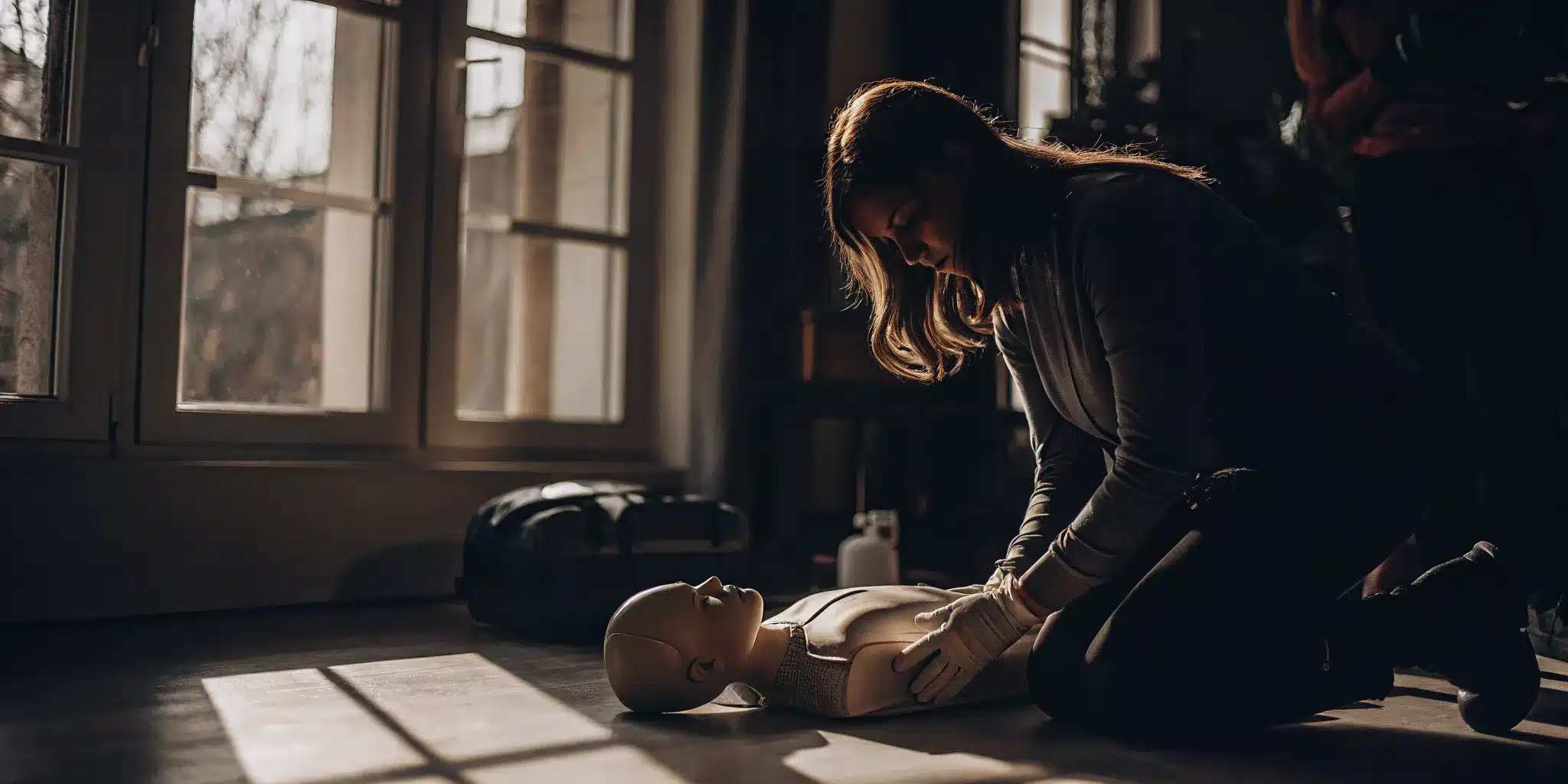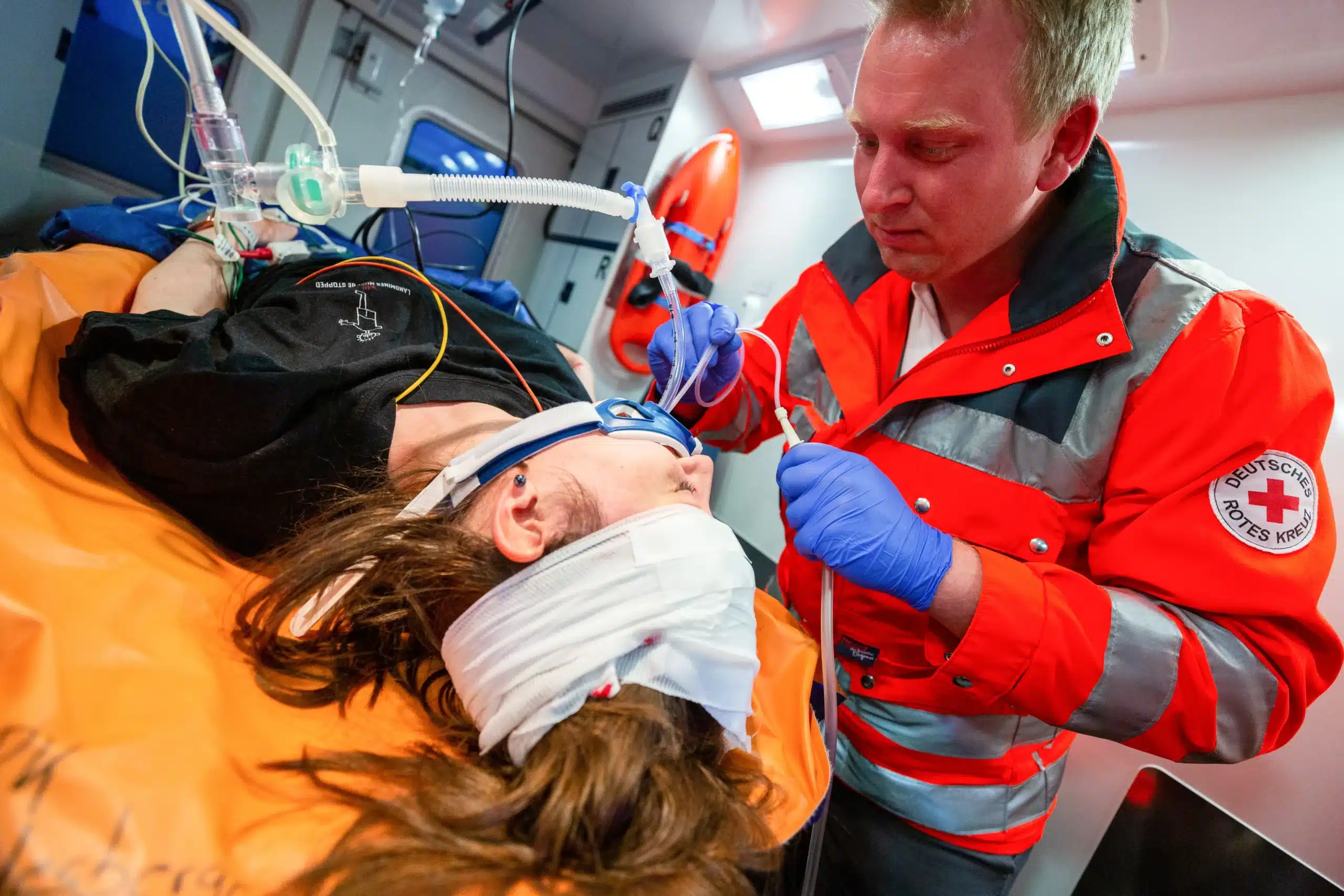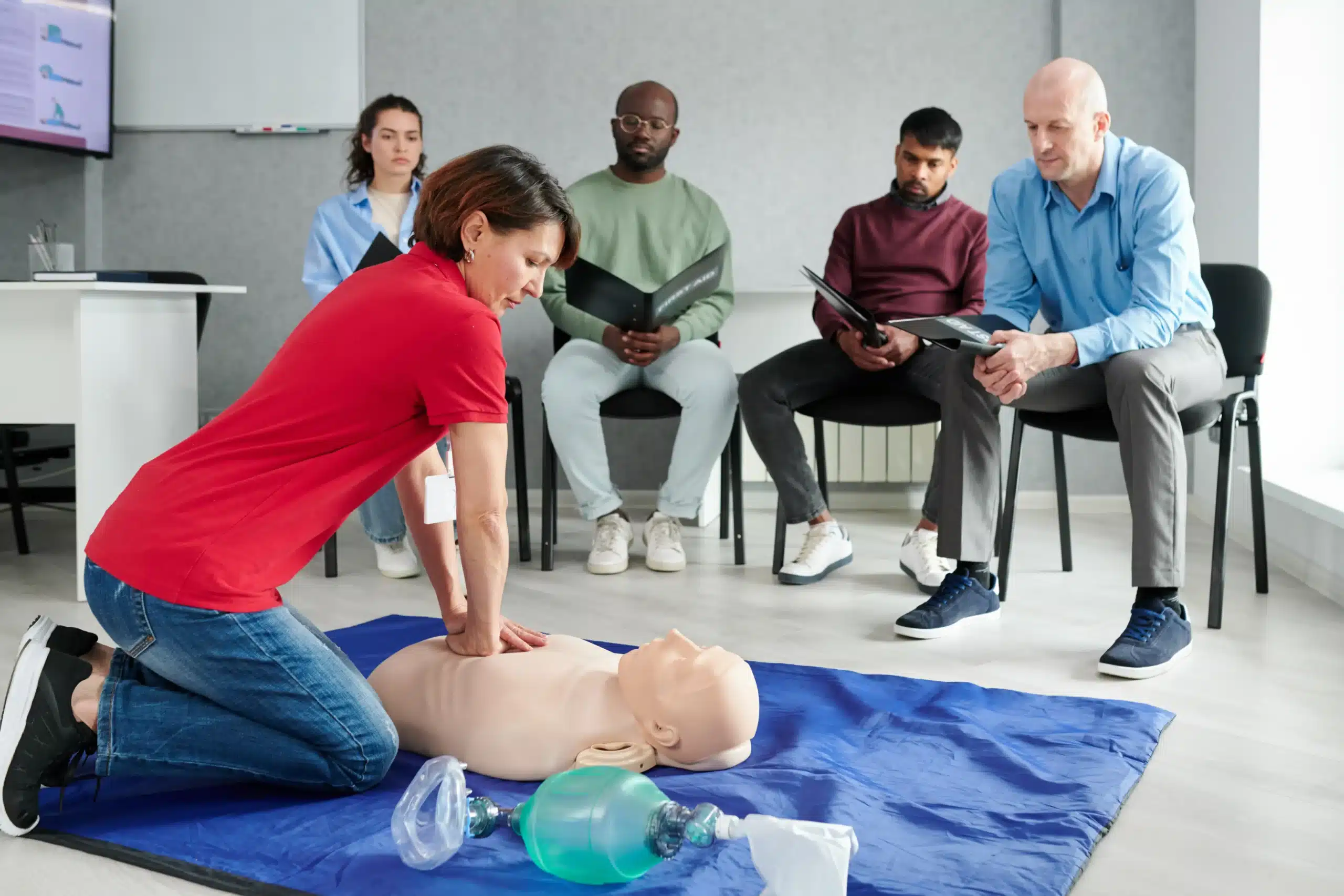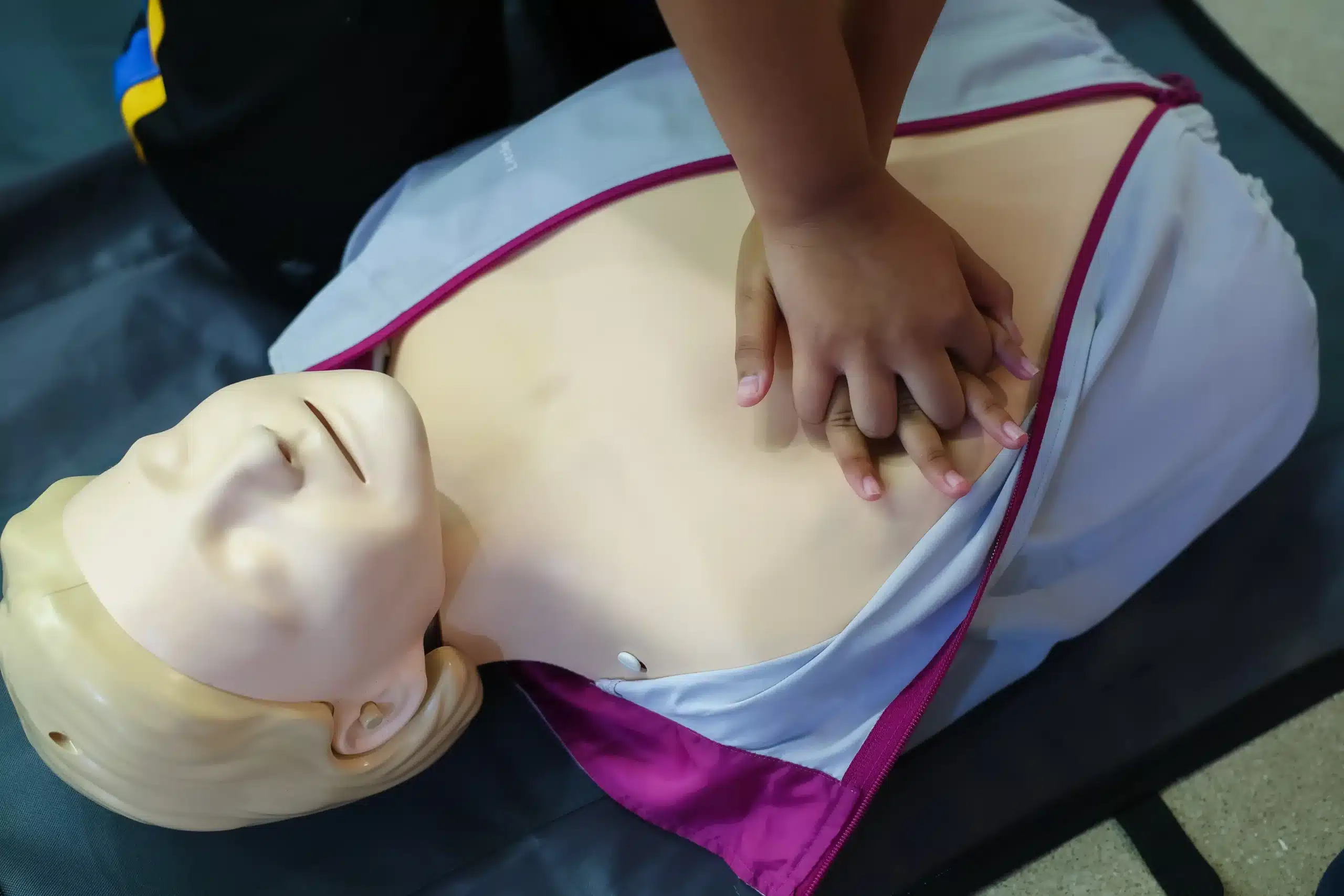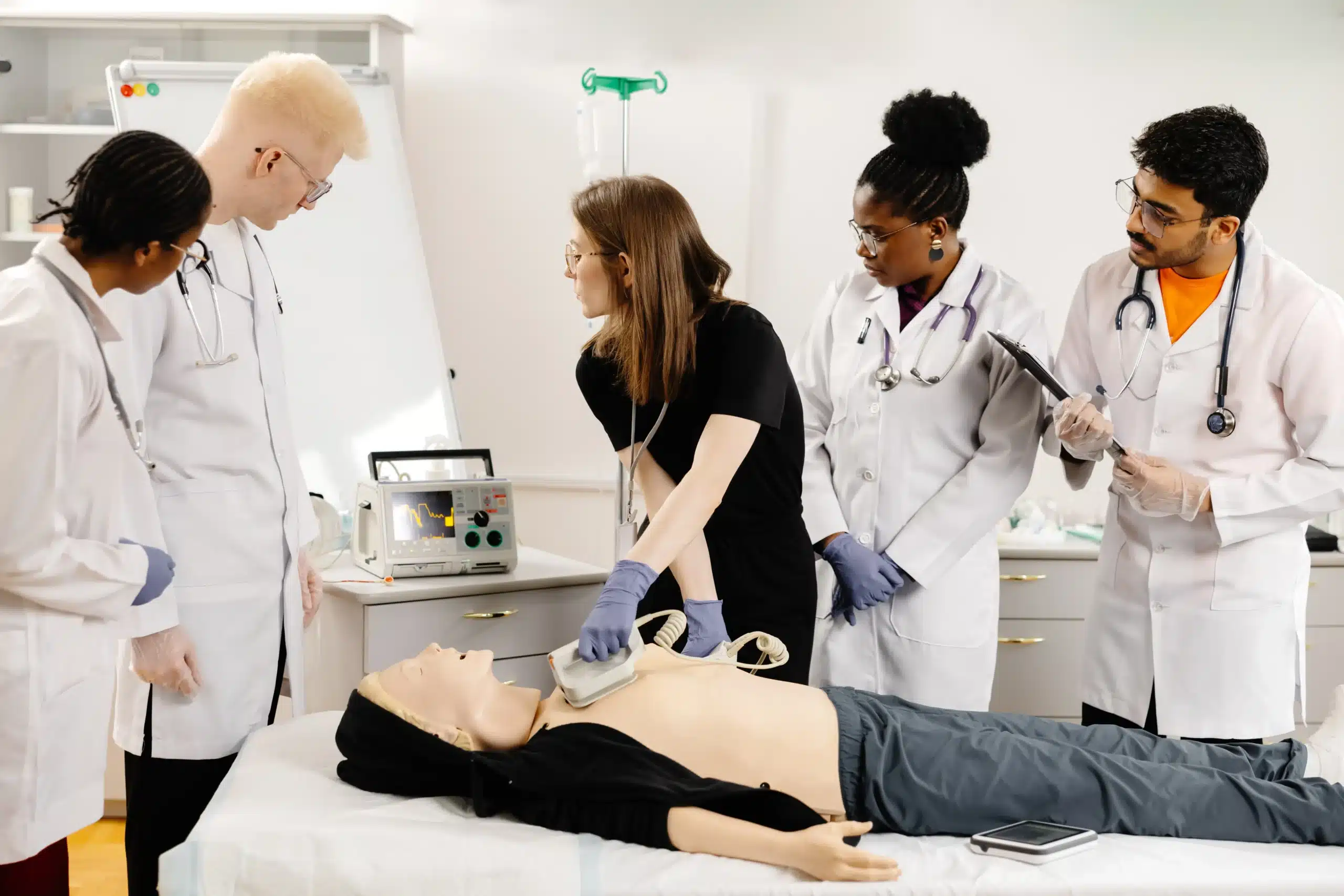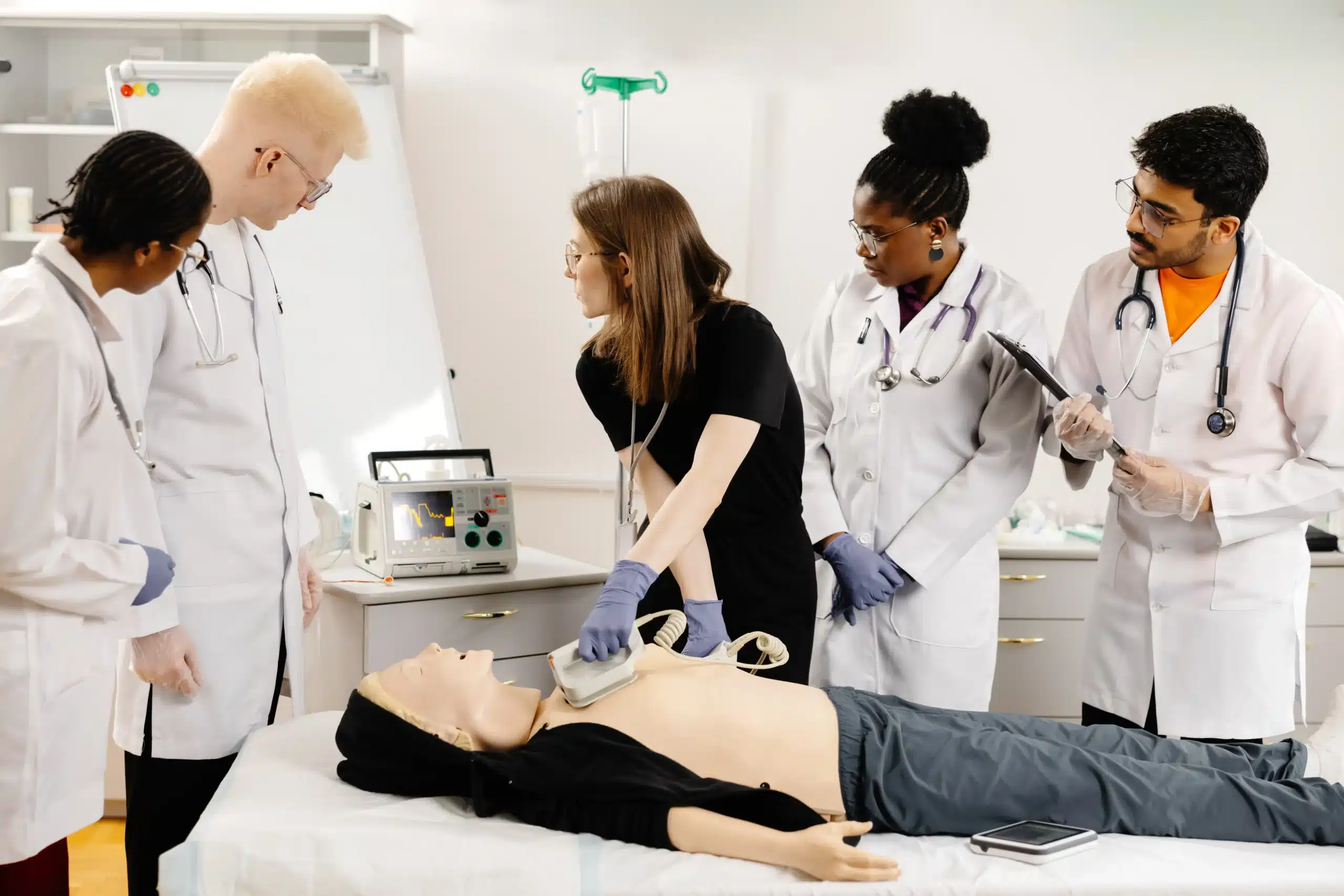Emergencies can happen anytime, anywhere. Are you ready to respond? CPR certification in Dixon empowers you with the skills and confidence to act quickly and effectively in critical situations. This guide breaks down the process of getting certified, from choosing the right course to understanding what happens during the training. We’ll explore various CPR courses available in Dixon, discuss the costs and benefits of certification, and address common misconceptions. Whether you’re looking to enhance your career prospects or simply want to be prepared to help your community, this guide provides the information you need to get started with CPR certification in Dixon.
Key Takeaways
- CPR Certification Empowers You: Learning CPR builds confidence and equips you to handle medical emergencies effectively, potentially making a real difference in someone’s life. Explore local options like Vacaville CPR Classes for convenient and comprehensive training.
- Find the Right Fit: Different CPR courses cater to various needs. Whether you’re in healthcare, childcare, or simply want to be prepared, choose a course that aligns with your goals and provides the specific skills you require.
- Get Certified with Ease: Preparing for CPR training is straightforward. Find a class that fits your schedule, gather any necessary materials, and familiarize yourself with the core concepts beforehand to maximize your learning.
What is CPR Certification in Dixon?
CPR certification in Dixon gives you the skills to respond to cardiac emergencies. This training covers core cardiopulmonary resuscitation (CPR) techniques and is essential for anyone who might need to help someone experiencing cardiac arrest. While CPR certification isn’t legally required to perform CPR, it ensures you’re prepared and confident in a crisis. It also means you’ve learned the most up-to-date techniques and guidelines from the American Heart Association. Vacaville CPR Classes offers convenient courses right here in our community. The American Red Cross also provides various learning formats, including in-person, online, and blended learning to accommodate different schedules. You can find additional American Heart Association-certified CPR and First Aid training at local institutions like KSB Hospital, giving you access to high-quality instruction. Getting certified not only teaches you the mechanics of CPR but also builds your confidence so you can act quickly and effectively in an emergency. This training can truly make a difference in community safety and even open up new career opportunities.
CPR Courses in Dixon
Several organizations in and around Dixon offer CPR certification courses to equip you with life-saving skills. Here’s a look at some options:
Heartsaver CPR/AED
KSB Hospital offers the Heartsaver CPR/AED course, designed for those who need a general CPR certification but don’t work in healthcare. This course covers essential CPR techniques and how to use an automated external defibrillator (AED). It’s a great fit for coaches, teachers, community members, and anyone who wants to be prepared to respond to a cardiac emergency. The course typically lasts about two hours. You can explore KSB Hospital’s course schedule for more information.
BLS for Healthcare Providers
Healthcare professionals needing CPR/AED certification can consider the BLS for Healthcare Providers course, also offered through KSB Hospital. This more comprehensive training provides in-depth instruction tailored to the needs of medical personnel, including nurses, doctors, and other healthcare providers. The BLS course typically runs about four hours and covers advanced techniques and protocols relevant to healthcare settings. Visit KSB Hospital’s website for details and registration.
Pediatric CPR
For those working with children, KSB Hospital offers a Pediatric CPR/AED & First Aid course. This course covers CPR and AED use specifically for infants and children, along with essential first-aid skills. It meets the requirements for 4C’s providers, making it an excellent option for daycare providers, teachers, and other childcare professionals. This comprehensive course usually takes about six hours and includes lunch. Learn more and register on KSB Hospital’s CPR page.
Costs & Value of CPR Certification
Getting CPR certified is an investment in yourself and your community. Let’s break down the costs and explore why it’s so valuable.
Course Fees
CPR course fees vary depending on the provider, the type of course, and your location. Generally, you can expect to pay somewhere between $70 and $150. Basic CPR and first aid training can cost around $45, while more advanced courses, like those for healthcare providers, may be more expensive. Check with various providers, like the American Red Cross or local training centers, for specific pricing. At Vacaville CPR Classes, we offer a low-price guarantee.
Additional Expenses
While the course fee covers the primary instruction and certification, there might be small additional expenses. Some courses require you to purchase a student manual or pocket mask. These costs are usually minimal and often optional. Ask your chosen provider about any extra costs upfront.
Certification Benefits
The value of CPR certification goes far beyond the monetary cost. Learning CPR equips you with the skills to respond confidently in a medical emergency. It’s about potentially saving a life. CPR-certified individuals report increased confidence, not just in emergencies, but in their everyday lives. Knowing you can help someone in need is empowering. A CPR certification can open up career opportunities or enhance your current career path, especially in healthcare, education, and childcare. For those working with children, EMSA Childcare Health and Safety training is a valuable addition. CPR certification makes our communities safer by increasing the number of people prepared to act in critical situations.
CPR Certification Duration & Renewal
Certification Validity
CPR certifications are typically valid for two years. This timeframe helps ensure your skills and knowledge stay fresh and effective. This two-year standard is common practice, as confirmed by KSB Hospital. The American Red Cross also highlights the importance of hands-on training, explaining that completing in-person skills sessions leads to a two-year certification meeting OSHA requirements. A current certification allows you to respond confidently during emergencies.
Renew Your Certification
Keep your CPR skills sharp by renewing your certification before it lapses. While certifications generally last two to three years, staying up-to-date is crucial, as noted by CPR For Employment. Contact your certifying organization for their specific renewal process, which might include a refresher course. Renewing your certification not only maintains your credentials but also reinforces your ability to act quickly and effectively when it matters most. Being prepared can make all the difference.
Choose the Right CPR Course
Deciding which CPR course suits you best depends on your goals. Do you need it for work, or do you want to be prepared for emergencies at home? This section helps you understand the different CPR courses available in Dixon and how to choose the best one.
Compare Course Content & Skills
CPR courses differ in content and the skills they teach. Some, like Family & Friends CPR, focus on basic life support for adults, children, and infants without offering official certification. These are great for anyone who wants to learn CPR but doesn’t need it professionally. Others, such as those designed for healthcare providers, cover more advanced topics like using an AED and two-rescuer CPR. The American Heart Association (AHA) and the American Red Cross offer various courses with different lengths and costs. Compare AHA and Red Cross CPR training certifications to find the best fit.
Who Should Take Each Course?
The ideal course depends on why you’re taking it.
- Healthcare Professionals: Doctors, nurses, paramedics, and other healthcare providers typically require BLS (Basic Life Support) for Healthcare Providers certification. This course covers a wider range of skills, including CPR for adults, children, and infants, using an AED, and responding to choking.
- Childcare Providers: People working in daycare or childcare settings often need Pediatric CPR training. This course focuses on CPR and first aid for infants and children. Some facilities may also require additional health and safety training. Contact your employer or licensing agency to confirm specific requirements.
- General Public: If you want to learn CPR for personal preparedness or to help family and friends, a Heartsaver CPR/AED course is a good option. This course teaches essential skills to respond to cardiac and breathing emergencies. The Family & Friends CPR course is another option for basic knowledge and skills without needing formal certification. Learning CPR offers many benefits, including increased confidence and the ability to potentially save a life.
Find CPR Classes in Dixon
Finding the right CPR class in Dixon is straightforward with several excellent resources and training centers available. Here’s a breakdown of local providers and how to find their class schedules:
Local Training Centers & Providers
Vacaville CPR Classes
We offer a range of American Heart Association certification courses in CPR, First Aid, BLS, ACLS, PALS, and more. Serving Dixon residents, we offer high-quality instruction and flexible scheduling. Check our website for the latest course calendar and to register. We also offer group discounts for Dixon businesses and organizations.
American Red Cross
The American Red Cross provides CPR and first aid training through various courses, including blended learning options combining online coursework with in-person skills sessions. Find a Red Cross CPR class near Dixon on their website.
Dixon Fire Department
The Dixon Fire Department periodically offers CPR and AED training to the community. Check their website or Facebook page for upcoming class announcements. These courses are a great way to learn CPR from local first responders.
Local Community Colleges
Area community colleges, such as Solano Community College, may offer CPR certification through their continuing education programs. Check their websites or course catalogs for information on availability and registration.
Online Class Schedules
Many training providers post their course schedules online. Check the websites of the providers mentioned above for their online calendars, often filterable by course type, date, and time. Some providers, like Vacaville CPR Classes, allow you to register directly online.
Register & Prepare for CPR Training
Getting ready for your CPR training is straightforward. These simple steps will help you prepare for a smooth and successful learning experience.
Enroll in a Class
First, find a CPR class that fits your schedule and learning style. Vacaville CPR Classes offers a variety of CPR and first-aid certification courses designed to meet different needs, from basic CPR to advanced certifications like ACLS and PALS. Check the course descriptions to see which one aligns with your goals. We offer daily certification courses through Safety Training Seminars, making it easy to find a time that works for you. Serving Vacaville, Dixon, and Fairfield, our convenient location makes accessing high-quality training simple. We also offer group discounts to make training more accessible.
Required Materials & Prerequisites
Most CPR courses don’t require extensive materials beforehand. Often, the training provider will supply everything you need during the class. It’s always a good idea to contact us directly or check our website to confirm any specific requirements for your chosen course. This way, you’ll arrive prepared and ready to learn. Some courses, like our RQI classes, may have specific prerequisites, so double-checking is always recommended. Our low price guarantee ensures you’re getting the best value for your training.
Pre-Course Study
While pre-course study isn’t usually mandatory for basic CPR certification, familiarizing yourself with the core concepts can enhance your learning experience. You can find helpful resources and information on the American Heart Association website. Brushing up on the basics beforehand can help you feel more confident going into the class and allow you to focus on mastering the practical skills during the hands-on training sessions. We encourage you to explore our website for more information and to register for your CPR training today.
What Happens During CPR Training?
Want to know what to expect during your CPR training? Here’s a look at the typical course structure, the importance of hands-on practice, and how you’ll be assessed.
Course Structure & Duration
CPR certification courses, whether through the American Heart Association or the American Red Cross, are designed to equip you with the knowledge and skills to respond to cardiac emergencies. The length of your CPR class will depend on the specific course and the level of certification you’re pursuing. For example, a basic CPR and first-aid course may only take a few hours, while a more advanced course, like one for healthcare providers, will require more time. Check out our CPR and first-aid certification courses for more details.
Hands-on Practice
CPR training isn’t just about learning the theory. A significant portion of your course will involve hands-on practice. You’ll work with training manikins to practice chest compressions, rescue breaths, and other essential techniques. This hands-on training is crucial for building muscle memory and confidence, so you can effectively apply these skills in a real emergency. You’ll learn how to respond to various scenarios, including adult, child, and infant emergencies. Consider our group discounts if you’re training with friends or colleagues.
Assessment Methods
Your CPR instructors will assess your skills throughout the course. Typically, this involves demonstrating your CPR technique on a manikin during a simulated emergency. Successful completion of these in-person skills sessions results in a two-year certification, often meeting OSHA requirements. Some courses may also have a written exam component to test your knowledge of CPR principles and procedures. You’ll receive your certification card upon successfully completing all course requirements. Contact us if you have any questions about the assessment process.
CPR Certification Myths
It’s easy to get confused about the facts surrounding CPR. Let’s clear up some common misconceptions about CPR training and certification.
Debunking Common Myths
One persistent myth is that CPR is solely for healthcare professionals. This simply isn’t true. Anyone can and should learn CPR. Equipping yourself with these skills means you can potentially save a life in an emergency. Another misconception is the fear of causing harm by performing CPR on someone who doesn’t need it. It’s highly unlikely you’ll injure someone by administering CPR, even if they turn out not to have needed it. Some also mistakenly believe CPR is only effective if performed by certified individuals. While certification demonstrates a commitment to proper technique, even uncertified CPR can make a difference. Finally, some worry about causing serious harm while performing CPR. The truth is, taking action is almost always better than inaction in a life-or-death situation. Common CPR myths can be more dangerous than attempting CPR.
Legal Aspects of CPR
Many people wonder about the legal implications of performing CPR. One common concern is the fear of lawsuits if you unintentionally injure someone while performing CPR. Good Samaritan laws generally offer legal protection to those who provide assistance in emergencies. These laws recognize that bystanders are acting in good faith and shouldn’t be penalized for trying to help. While formal CPR certification isn’t legally required to perform CPR, taking a CPR course ensures you’re properly trained and confident in your abilities. This training provides the knowledge and skills to administer CPR effectively and safely.
Benefits of CPR Certification
Getting CPR certified is about more than just checking a box; it’s an investment in yourself and your community. The skills you gain can have a ripple effect, creating a safer environment for everyone.
Learn Life-Saving Skills
CPR certification equips you with the ability to respond effectively during medical emergencies. These skills empower you to provide immediate assistance to someone experiencing cardiac arrest, potentially saving their life. Knowing how to perform CPR can bridge the gap until professional medical help arrives, giving the person a better chance of survival. This knowledge can bring peace of mind, knowing you’re prepared to handle such critical situations. Learn more about the life-saving power of CPR training.
Advance Your Career
CPR certification can open doors to various career opportunities. Many professions, especially in healthcare, require CPR certification as a prerequisite. This includes roles like nurses, doctors, paramedics, and other medical professionals. Beyond healthcare, CPR certification is often preferred or required for positions such as teachers, lifeguards, and childcare providers. Adding this valuable credential to your resume can make you a more competitive candidate and enhance your career prospects.
Make Your Community Safer
By becoming CPR certified, you contribute to a safer community. Your training can make a difference in various settings, from your workplace to public spaces. Imagine being able to assist a family member, friend, or even a stranger in need. CPR-trained individuals create a network of first responders within their communities, ready to act when emergencies arise. Learn how to promote CPR awareness and consider organizing CPR workshops or training sessions with local organizations to spread these essential skills even further.
Related Articles
- Why CPR is Important in Healthcare – Vacaville CPR Classes
- Why Workplace CPR and First-Aid Training Matters
- CPR Myths Debunked: The Truth Behind Lifesaving Techniques
- Course Preparation – Vacaville CPR Classes
- Northern CA CPR Directory – Vacaville CPR Classes
Frequently Asked Questions
Where can I find CPR classes in Dixon, CA? Several options are available for CPR certification in and around Dixon. Vacaville CPR Classes offers various American Heart Association-certified courses. You can also find training through KSB Hospital, the American Red Cross, the Dixon Fire Department, and potentially at local community colleges. Check their websites or contact them directly for schedules and course details.
How much does CPR certification cost, and what does it include? CPR course fees typically range from $70 to $150, depending on the provider, course type, and location. This fee usually covers instruction, materials, and the certification card. Some courses may have additional costs for manuals or pocket masks. Always confirm pricing and any extra fees with the provider before registering. Vacaville CPR Classes offers a low-price guarantee.
How long is CPR certification valid, and how do I renew it? Most CPR certifications are valid for two years. To renew, contact the organization that issued your original certification. They’ll guide you through the renewal process, which usually involves a refresher course. Staying current with your certification ensures your skills are up-to-date.
What type of CPR course is right for me? The best course depends on your needs. Healthcare providers typically require BLS for Healthcare Providers certification. Those working with children often need Pediatric CPR training. For general preparedness or to help family and friends, a Heartsaver CPR/AED course or Family & Friends CPR is a good option.
What can I expect during a CPR training class? CPR training involves learning the theory behind CPR and, importantly, lots of hands-on practice. You’ll use manikins to practice chest compressions, rescue breaths, and other techniques. Instructors will assess your skills throughout the course, often through simulated emergency scenarios. Some courses may also include a written exam. You’ll receive your certification card upon successful completion.
This article was written for free by MEGA SEO.
